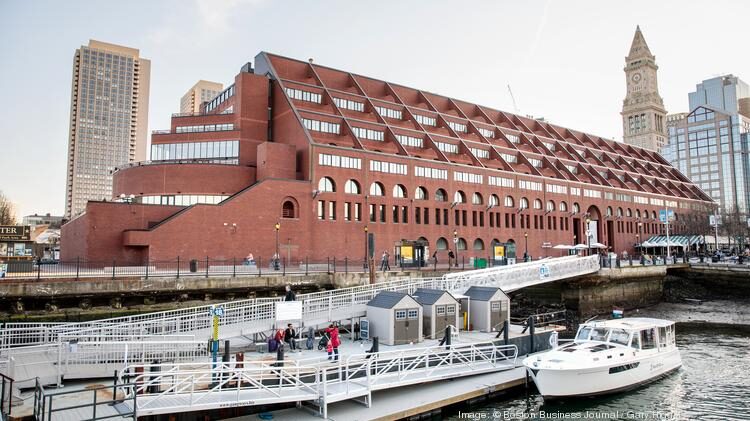Jeffrey Saffitz, MD, PhD (Pathology, BIDMC) shared that before the COVID-19 pandemic, diagnostic tests and the laboratory workers that run them were not used to seeing the limelight. The swift spread of the virus brought new attention to testing this year.
Boston Business Journal – December 24, 2020
Biogen, messenger RNA and CRISPR creators: These were the top five stories in Boston biotech

Biogen conference turns into outbreak
The first spike in Covid-19 cases in Massachusetts this year was linked to a company familiar with serious diseases: Cambridge neuroscience drug maker Biogen Inc. Following management meetings at the company, the Cambridge Marriott and the Boston Marriott Long Wharf in late February, Biogen employees began exhibiting symptoms of the virus. Nearly 100 people linked to the meeting eventually tested positive for Covid after having gone to other conferences, into the office, sending their children to public schools and more. The situation prompted some employers to begin shutting down their offices, but the state did not initially shut down large events. In August, several dozen scientists at the Broad Institute estimated the Biogen outbreak may have led to nearly 20,000 cases, and this month, an article in the journal, Science, based on phenotyping put the number at as much as 300,000 worldwide. The state has released some emails from March related to its early attempts to get a handle on the outbreak, but has yet to release all of them despite a public records request from the Business Journal.
FDA reviews Biogen’s controversial Alzheimer’s disease drug
While dealing with its internal Covid outbreak, Biogen was also preparing an application for what could be the first entirely new Alzheimer’s disease treatment in more than 15 years. Biogen has invested heavily in this medication while shutting down several other clinical trials in the last two years. Meanwhile, there are new competitors for Biogen’s current commercial products for other neurological disorders, hindering its longstanding revenue streams.
The FDA initially took a favorable view of the drug, but outside advisors brought in to review the medication took issue with how Biogen interpreted the clinical data it has collected, including from one Phase 3 trial that failed to show the drug was effective. The FDA is expected to make a decision by March 7, 2021.

Messenger RNA tech reaches maturity — thanks to Covid vaccines
The race to produce Covid-19 vaccines this year relied heavily on a new scientific approach: messenger RNA, which was still in the experimental phase when the pandemic began. Both Pfizer Inc.’s and Moderna Inc.’s vaccines inject the RNA instructions needed to produce one of the proteins behind Covid into the body, allowing the immune system to begin building a defense against the virus. The two companies’ vaccines are the first such products to go before the FDA, and other such companies say it paves the way for the field to accelerate. “When we know that we could do one (product), the odds we can do the second, third and fourth go way up,” Moderna President Stephen Hoge said. “We’re going to start to move with more speed, more confidence.”
Diagnostics take center stage
Before the Covid-19 pandemic, diagnostic tests and the laboratory workers that run them were not used to seeing the limelight. “In most normal circumstances, the doctors and patients don’t have much understanding of what we do,” Beth Israel Deaconess Medical Center’s Chief of Pathology Jeffrey Saffitz told the Business Journal in March. But the swift spread of the virus brought new attention to testing this year. The pandemic pushed several local companies into commercial mode. Cambridge’s Sherlock Biosciences is launching its first-ever commercial product to test for the novel coronavirus — and is donating the proceeds. Beth Israel, meanwhile, got assistance from Watertown startup Aldatu Biosciences, which had just nine employees when they began working with the hospital. By year’s end, life science giants like Ginkgo Bioworks were delving into the field that suddenly attracted billions of dollars of investment.

CRISPR gene editing creators win Nobel Prize
In a surprise move, the Nobel Prize committee awarded noted scientists and biotech founders Emmanuelle Charpentier and Jennifer Doudna the 2020 prize in chemistry for their work on the gene editing technology CRISPR. The science’s ability to resolve genetic diseases is just now being tested in the first human subjects, but Nobel Committee Chair Claes Gustafsson said it has already revolutionized basic science. Several local startups basked in the win: Charpentier co-founded Cambridge’s CRISPR Therapeutics in 2013, while Doudna co-founded Editas Medicine and Intellia Therapeutics. “We call Dr. Doudna Intellia’s first nobelist. Hopefully, we’ll collect the trophies,” Intellia CEO John Leonard told the Business Journal after the prize announcement in October.

